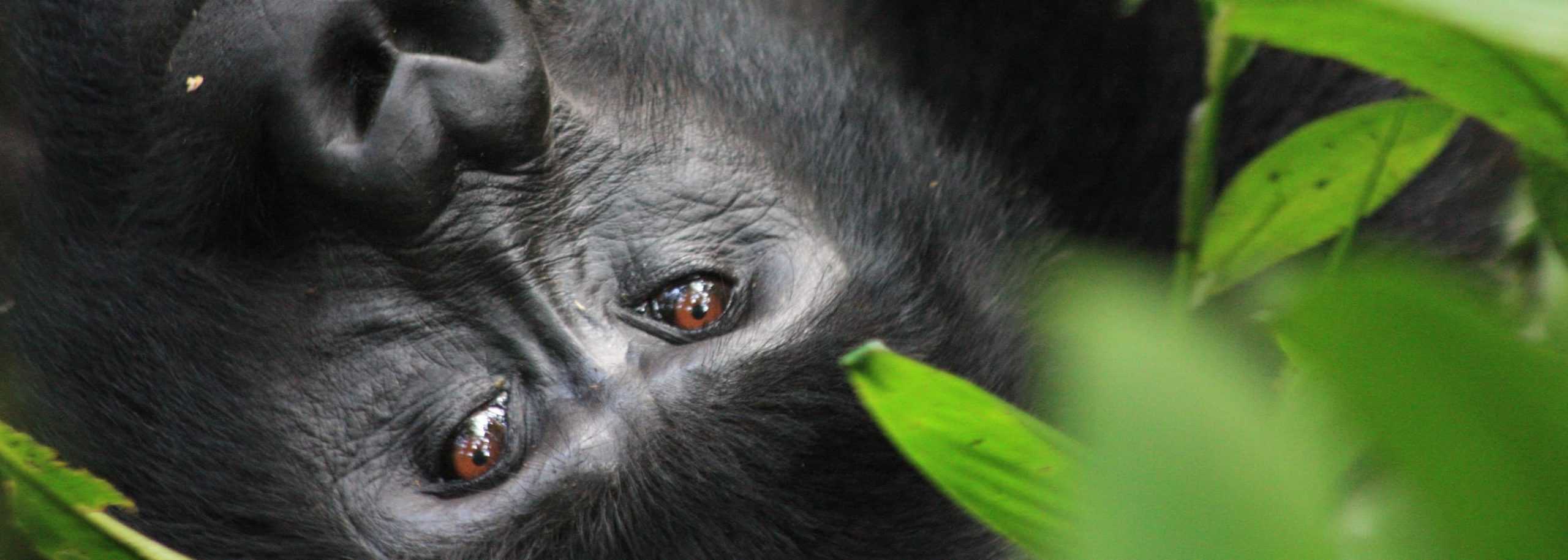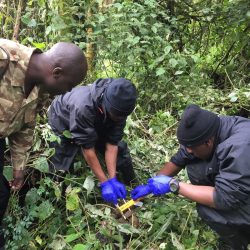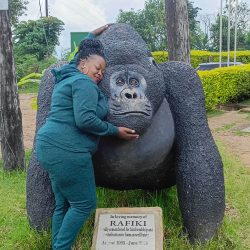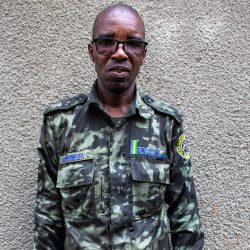Women Artisans Transform Notorious Poachers to Wildlife Protectors Around Bwindi Impenetrable National Park!
Blog | 2/11/23
In the thick humid and breathtaking Bwindi Impenetrable National Park rests Mpungu Village, a stretch of the forest joining Ruhija to Buhoma sectors often referred to as the “neck of Bwindi”. Apart from its astonishing beauty and being an inviting area for birding, over the years Mpungu has derived its fame from notorious poaching. “Mpungu has the biggest number and most dangerous poachers who often use dogs and snares to kill wildlife within the protected area,” says Sande Ndayakunze, Tourism Warden, Ruhija Sector – Bwindi Impenetrable National Park. Regardless of several warnings and arrests from park authorities the poaching trend would only be on the rise each year, till recently when a charismatic women artisan group took on the mantel.
Buremba Women Artisans group has dedicated it’s time to sensitizing the community against poaching, thanks to IGCP’s community engagement approach that initiated the women into active conservation and helped them to appreciate the benefits of conversation. Comprised of 26 women, the group has so far transformed about 40 poachers to protectors starting with their husbands. “We have a door-to-door sensitization program, where we talk about the dangers of poaching and the benefits of conservation to the park-edge communities. Through these outreach visits poachers verbally denounce the vice and later put it in writing,” says Vastina Kyampeire, Chairperson.
In 2022 IGCP through its SIDA-Leading the Change project donated $ 1,778 to the women group to invest in onion farming. The project helped to reduce human wildlife conflict (because the onions are non-palatable crops), which was rampant in the area but most importantly it earned the group good income and brought about behavior change. “We got to know of another way to earn a living without encroaching on the park. We also learnt that we can only achieve tourism benefits if we stand up against poaching,” says Jane Tugumisirize -wife to an ex-poacher.
The women harvested over 45 bags (4500 kgs) and sold each bag at $ 68. According to Vastina, the group chair they made a profit of about $ 1,222. “Our husbands denounced poaching after we received the IGCP funds, and more after the bumper harvest. They realized hunting for bushmeat was not a sustainable way to live,” says Tugumisirize.
According to Henry Mutabaazi, IGCP Uganda Country Coordinator, this story gives great lessons on the importance of an all-inclusive conservation approach, “For long women have been left out in many conservation initiatives and the negative impact has been massive. Involving women groups around Bwindi Mgahinga Conservation Area in planning and implementation has resulted into multiple conservation solutions against poaching and human wildlife conflict.” Uganda Wildlife Authority is optimistic that with such initiatives, wildlife will be protected and human presence in the protected area will reduce. “Human presence in the park endangers wildlife directly and indirectly. For example, we have had cases of mountain gorillas being caught in snares much as they are not the primary targets. We have also had gorillas die of respiratory diseases, worms and all these are human transmitted. So, such initiatives if sustained can help us address these very crucial challenges,” says Mr. Ndayakunze.




